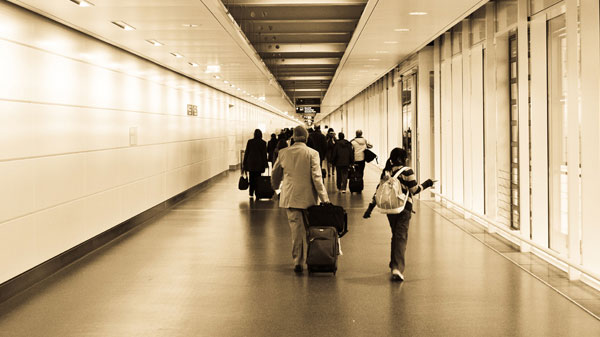Despite (literally) banking on its reputation as Asia’s World City, home to unparalleled efficiency, reliable transport and a seldom-matched high quality of life, it seems that Hong Kong might not be a must-stay municipality in the eyes of many of its younger residents. Indeed, it’s an issue that the local government has already flagged up as a concern.

According to its latest data, over the last 12 months, Hong Kong recorded its smallest growth in population for nine years, with the official level rising just 0.4 percent to 7.4 million registered residents. What’s more, at least according to the 2017 census figures, there has also been a staggering increase in the number of residents forsaking the SAR – 24,300 over the last 12 months, virtually a four-fold increase over the 6,100 recorded in 2016. This Hong Kong brain drain is only exacerbated by the fact that the city has simultaneously been landed with an increasingly ageing population and a shrinking workforce.
Why, though, has the situation suddenly become quite so chronic? Have better opportunities abroad seduced working professionals away or has Hong Kong, in fact, become a less-than-desirable long-term base for ambitious young executives-to-be?

The answer, as always, is complex and multi-faceted. Perhaps the largest factor driving young Hongkongers away lies in the SAR’s notoriously sky-high real estate prices, figures that are perhaps only matched by its vertiginously-storeyed skyline. According to Ricacorp Properties, a local real estate broker, during the first quarter of 2018, the average price of second-hand homes – which are historically cheaper to purchase – soared to HK$8.08 million (US$1.28 million), the highest figure since 1996, when such data was first recorded.
What’s more, the average cost of brand-new homes grew by an equally unambiguous 18 percent, reaching HK$16.08 million (US$2.05 million) over the same period. Summing up the serious nature of the situation, one of the directors of CIMB Securities, the fifth-largest ASEAN bank, said: “These home prices are clearly beyond the general public’s reach and they only look set to increase, albeit more slowly, over the next two years.”
Such stellar increases in property pricing mean that, for many millennials hoping to set up a home, the prospect of ever being able to afford an apartment in Hong Kong seems both bleak and remote.

Currently, a new 800sq.ft apartment in a neighbourhood such as Tsuen Wan can easily cost more than HK$15 million (US$1.911 million). By comparison, a similar condo in New York’s Midtown Manhattan could be had for little more than US$1 million. Meanwhile, over in Vancouver – a popular choice for many Hong Kong escapees – the price of a similar residence would be somewhere around US$500,000.
With local banks more interested in pandering to the purchasing demands of the city’s many ultra-high-net-worth-individuals (UHNWIs) than catering to the low and mid-income first-time home buyers, there seems little hope of any real change any time soon. Articulating the sentiments of many, former civil servant Joseph Wong said: “Young graduates no longer have the prospect of having truly middle-class lives or owning a flat, at least not without the help of their – hopefully rich – parents.”
It’s not only unaffordable real estate, however, that’s driving the Hong Kong brain drain. Another key factor in this mass migration is one of Hong Kong’s other unpleasant realities – its wealth gap. According to a 2017 Hong Kong Census and Statistics report, the top 10 percent of Hong Kong households earned 44 times more than the bottom 10 percent.

In addition to these two potent forces, the city’s uncertain political climate, the staggeringly long work hours the city’s professionals notoriously put in – far more than in any other country – as well as a lack of faith and optimism regarding the city’s future are all playing their part.
So is the Hong Kong brain drain an unpluggable sinkhole? Or merely the latest cyclical manifestation of Hong Kong’s population push and pull? Well, with many of the old economic, political and social certainties rearing their collective heads, it will very much depend on what kind of Hong Kong – and, let’s face it, the city is in crossroads territory in almost every aspect of its existence – emerges as the mid-21st century looms over the horizon.
Text: Tenzing Thondup
Photos: AFP



